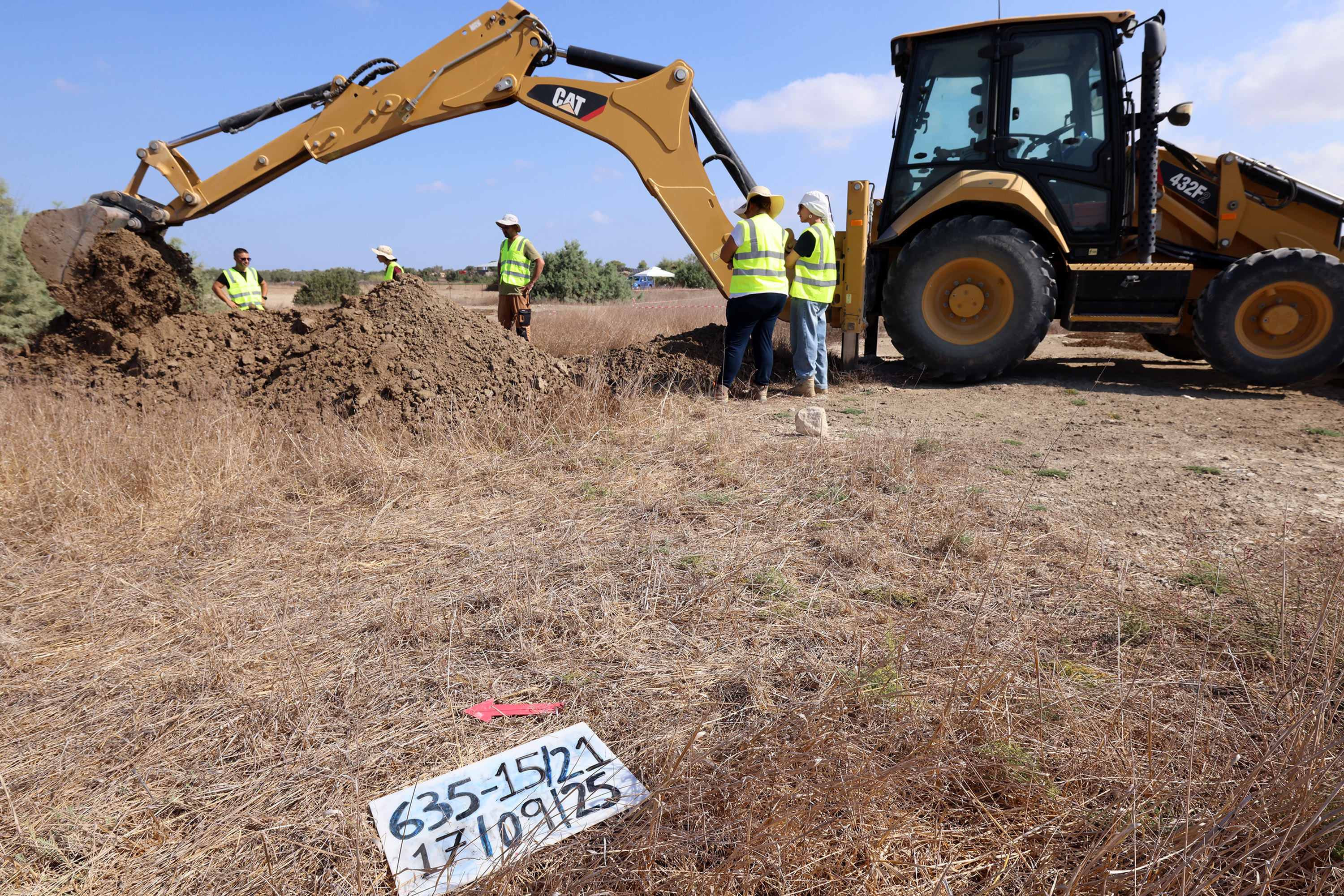As work continues to find those missing since 1974 and beforehand, one area in the Karpasia is currently in the spotlight
By Κyriaki Christodoulou
Used as an army camp by the Turkish military in 1974, the village of Galatia in the Karpasia region in the north is currently the focus of investigations by the Committee for Missing Persons (CMP) after reports that up to 10 people’s remains could be in the area.
“All the missing persons we are looking for here were civilians. We know that they were abducted from their villages, and this could be the burial site,” archaeologist Charalambos Siafkou said of the village lake.
“In the summer of 1974, the lake was, of course, empty, due to the weather. A Turkish Cypriot informant told us that [the perpetrators] brought a machine and proceeded with the burial. That’s all.”
CMP officials – Ali Gulluoglu, Cinar Ilaral, Guliz Buruncuk, Thekla Kalli and Demetris Minasides as well as the excavator driver Ergin Tarancii – have been digging nearby in the last few days but have so far found nothing. “There is a small house there from 1974 and it works as a reference point,” Siafkou said.
Excavations were carried out at two mass graves in the lake area in 2006 and 2015, where the remains of 18 Greek Cypriots were found and identified. Based on this, and other information collected, CMP has carried out at least five excavations since then, but with no success.
Information, Siafkou added, indicated there are up to eight more missing persons in the area.
Before 1974, Galatia was an entirely Turkish Cypriot village and, according to the 1973 census, had 1,184 inhabitants.
After intercommunal fighting in 1963, a large number of Turkish Cypriots withdrew into enclaves, one of which was Galatia.
During the Turkish invasion of 1974, it has been documented that Greek Cypriots were transferred to Galatia from the surrounding villages and killed. Witness testimony says they were then swiftly buried in the lake, to the west of the village.
The eight missing people the CMP is looking for were from the nearby villages of Yialousa, Komi and Eptakomi. One of these has a declared date of disappearance of October 3, 1974, according to testimony given by a Turkish Cypriot local to the area.
There are also thought to be two Turkish Cypriots in the area who are not on the official CMP list as they were executed by the Turkish Cypriot paramilitary organisation TMT, who might also have been buried somewhere in the lake.
In addition to Galatia, a second team is currently working in the nearby village of Eptakomi. Archaeologists hope to locate the remains of a missing person from the village buried in a well.
The fact that the area has not undergone any building development, due to the morphology of the lake, is seen as a positive by the CMP, but its huge expanse makes the work more difficult.
The CMP was established on the agreement between two leaders in 1981, to exhume, identify and return to their relatives the remains of 492 Turkish Cypriots and 1,510 Greek Cypriots, who went missing during the inter-communal fighting of 1963-1964 and 1974. As of late 2024, a total of 1,051 people had been identified and returned to their families.
“I would say what we always say as archaeologists. Even the smallest piece of information is important. We work based on the information and maps, and other means at our disposal, but anything that comes to us is significant,” Siafkou said.
Gulluoglu, who has been working with the CMP since 2009, said excavations carried out at a specific location in the lake, near the house, had no result, which is why it was decided to move on to the second location.
“We are trying to complete the excavation of the entire area, so there is nothing left behind. We know, based on information, that we have more missing people in the area, and that is why we are continuing,” he added.
The team is also at the whim of the weather. “We are pushing ourselves, trying to do our best before the rainy season starts,” he said.
He, too, appealed for information. “I want to tell Cypriots to give us more information. If they have learned something, if they have heard, they should not be afraid; they can come to our offices, call us. We want them to give more information so that we can find the rest of our missing people”.






Click here to change your cookie preferences